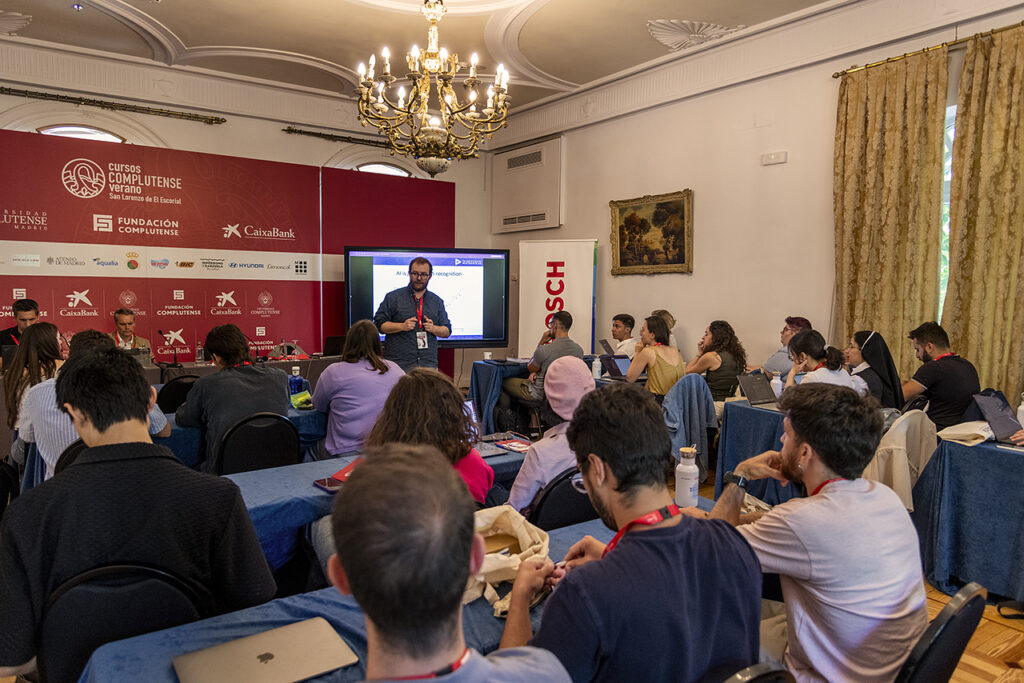
San Lorenzo de El Escorial, July 21, 2025 — Thirty-nine students from ten European universities are meeting this week at the Exe Victoria Palace Hotel to tackle an ambitious question: how can artificial intelligence serve society in a fair, ethical and socially responsible way?
The course, titled “Una Europa’s Data Science and Artificial Intelligence Challenge for Social Welfare,” is part of the Complutense University of Madrid’s Summer Courses and is organised and funded by Una Europa, Bosch and the ALFIE project.
The initiative is co-directed by Ángel González Prieto and Juan Antonio Recio García, professor in the Department of Algebra, Geometry and Topology at UCM and director of the Bosch-UCM Chair in Artificial Intelligence Applied to the Internet of Things. The course forms part of the Complutense AI Committee’s activities within the Una Europa alliance. What began as an independent idea has now become a key part of the Summer School, with strong support from Bosch and ALFIE.
The goal is to challenge students to address real social problems using AI, and to critically examine the ethical questions AI itself raises, especially when existing algorithms fail to serve underrepresented or marginalised communities fairly.
Participants receive full scholarships and accommodation in San Lorenzo de El Escorial. They work in diverse teams of six, combining students with technical backgrounds with others who have expertise in law, philosophy, ethics, social sciences or health sciences. Each team develops its own project and presents its solutions to the group.
A unique aspect of this year’s challenge is the creation of a student panel of six young people who act as an “assembly of young designers.” This panel ensures that all solutions respect the core principles of artificial intelligence for social welfare and comply with strong ethical guidelines.
In addition to the group work, participants attend a series of talks designed to build a common language among students from different disciplines. The lectures include an introduction to artificial intelligence, an overview of the main ethical challenges, tools to address them and discussions of specific ethical concerns in AI.
The course is taught entirely in English, which allows students from different countries and academic backgrounds to collaborate effectively. As Ángel González Prieto explains, diversity brings richness to the project. While technical knowledge is essential to develop AI solutions, a broader perspective is needed to ensure these solutions respect social and ethical values.
The ALFIE project is proud to contribute to this initiative and to support future professionals in designing artificial intelligence that truly works for the common good.
